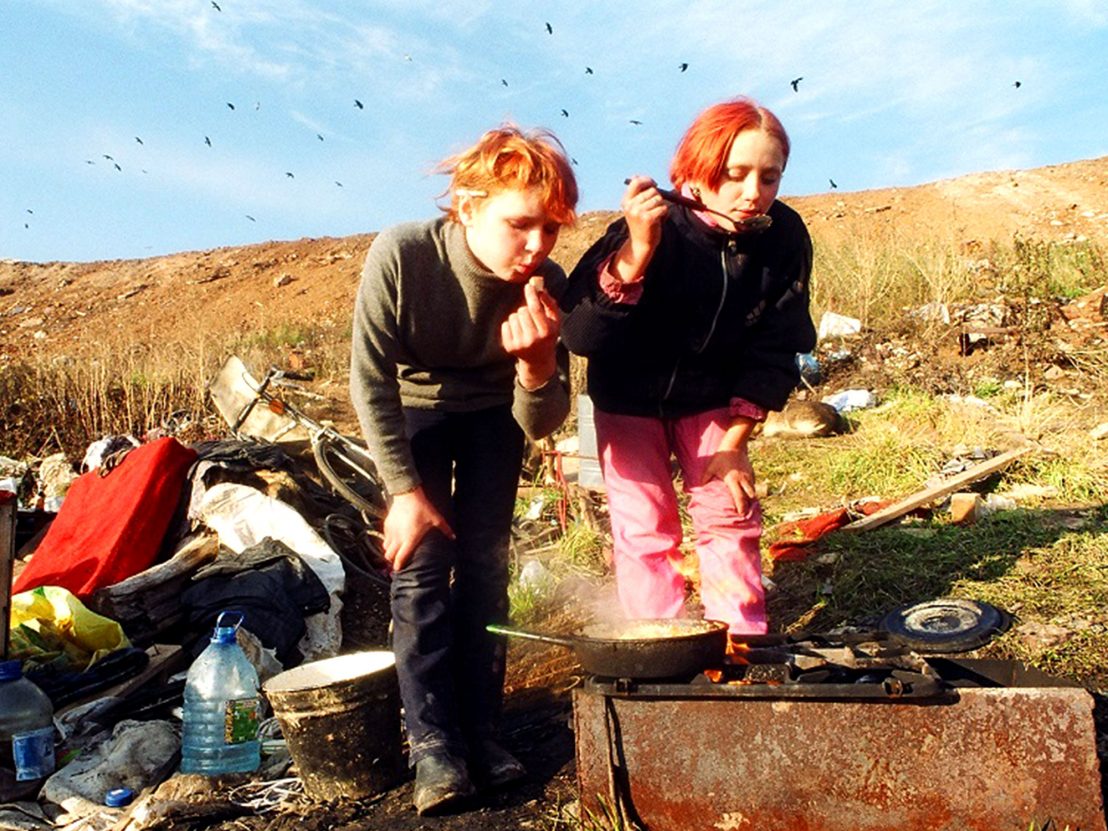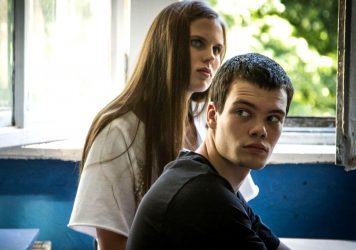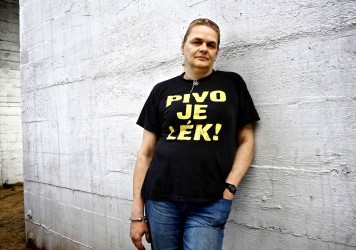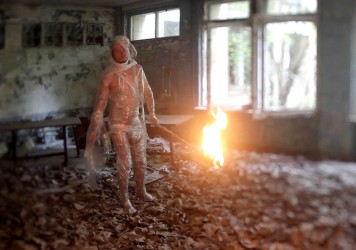
Pitted as a gritty, wintery equivalent to Boyhood, Something Better to Come spans 14 years in the life of child living on a Russian rubbish dump. Filmmaker Hanna Polak started shooting her coming-of-age documentary in 2000, just as Vladimir Putin was stepping into power. As such, the story of a lifetime becomes the story of a presidency.
Polak’s 18-year feat of endurance chronicles the life of Yula, who was born and raised on Europe’s largest landfill site, Svalka, on the outskirts of Moscow. The community that Polak captures represents just a small fraction of the hundreds of undocumented homeless people who live there. Polak depicts the instability of life for Russia’s down and outs through recurring footage of cascading landfill. What began as an elegy for the dispossessed soon became politically charged: the film’s title sequence is a montage of rubbish being transported from the Red Square to the Svalka, a clear message to the city Polak sees as in a state of perpetual decay.
The film’s bleak social realism gives us a different sense of time to that of a more conventional coming-of-age drama. Where Mason, the protagonist of Richard Linklater’s Boyhood, passes through various rites of passage at regular intervals, Yula’s life depends on her preserving hope for the future. Yet what lies on the horizon may not necessarily save her – Polak’s wide shots foreground human suffering against a backdrop of industrial cooling towers as if to question why the Kremlin, although so close in proximity, keeps to such a distance with regards to its social responsibility.
Putin’s neglect of his own citizens is suggested to be accountable for Yula’s absent father – his death from the Russian tuberculosis epidemic a tragic consequence of a lack of adequate state provision. More recent fiction films have similarly depicted Putin as having failed to adopt one of his young, fatherless citizens.
Kirill Serebrennikov’s 2016 film The Student, released in UK cinemas 3 March, is a provocative coming-of-ager in which teenage rebellion takes the form of religious fundamentalism. Pyotr Skvortsov plays Venya Yuzhin, a disaffected student who has become so well-versed in scripture that he loses touch with reality. The film is a direct statement on the bill Putin passed enforcing religious education in all state schools. Much like Something Better to Come’s desolate backdrop, Serebrennikov sets his film within the context of an uninspiring educational system in Kaliningrad, a city that does not offer its young population anything meaningful to believe in.
The most astonishing aspect of Something Better to Come is the transparency of its production. Employing naturalistic filmmaking techniques, Polak uses the opening sequence to reveal the difficulty she faced in making the documentary. Her resilience in the face of adverse conditions is remarkable – in interviews Polak has spoken about how, when looking through her camera’s viewfinder, she wouldn’t notice heavy machinery coming right at her. Yula’s quiet magnetism calls to mind the title character of Ken Loach’s 1966 made-for-TV drama Cathy Come Home, as well as the street-cast stars of Andrea Arnold’s Fish Tank and the earlier Wasp.
Polak’s interaction with the Svalka community is also a highlight in itself. On screen, we see her administering first aid, participating in candle-lit card games and sharing late-night bottles of vodka. Without a large production crew behind her, the tight close-ups which Polak’s captures are rendered all the more intimate. Any underlying concern that Polak is exploiting her subject is assuaged when Yula says: “Hanna, I want you to film me.”
After almost two decades in the making, Polak’s vital polemic could not have emerged at a more crucial time for both socially-conscious documentary cinema and internationalism journalism.
Something Better to Come is screening as part of the Barbican’s Chronic Youth Film Festival on Saturday 18 March before a ScreenTalk with director Hanna Polak. For more info visit barbican.org.uk
Published 28 Feb 2017

By Tom Williams
Kirill Serebrennikov’s scintillating drama offers of stark look at contemporary Russian schooling.

Mallory compassionately chronicles one woman’s long and painful battle with substance abuse.

Ukrainian artist Feder Alexandrovich serves as a key witness to the untold story of the Chernobyl disaster.